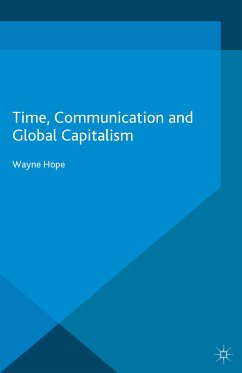Hans van Zon analyzes the financialization of developed capitalism, and argues that the emergence of finance as a dominant force has contributed to the relative decline of the West. He demonstrates that the neo-liberal model is inherently unstable and undermines capitalist economies, which can only function if they are embedded in institutions that are non- or even pre-capitalist. He shows how a toxic combination of financialization, corporate globalization, and a deregulated and parasitic financial industry have led to structural economic stagnation in both the USA and the greater part of the EU.
Dieser Download kann aus rechtlichen Gründen nur mit Rechnungsadresse in A, B, BG, CY, CZ, D, DK, EW, E, FIN, F, GR, HR, H, IRL, I, LT, L, LR, M, NL, PL, P, R, S, SLO, SK ausgeliefert werden.









